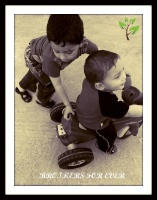raedgazo
مشارك مميز مع مرتبة الشرف


الاوسمة



عدد المساهمات : 1689
تاريخ التسجيل : 12/10/2010
 |  موضوع: كيف تقوم بـ "Critical Reading" في تخصص اللغويات موضوع: كيف تقوم بـ "Critical Reading" في تخصص اللغويات  الخميس مايو 26, 2011 4:18 am الخميس مايو 26, 2011 4:18 am | |
| Dear Brothers and Sisters,
Critical reading is
really important and helpful for a linguistics student. In fact, it is
essential for any persons involved in academic situations. Here, I will
write some tips that might shed light on the topic and may benefit some of you who are interested.
Before I impact on discussion, let me draw your attention towards one point which is there are a lot of books talking about Critical Reading and Thinking and I will cite one book at the end of the tips.
I will divide my topic into 6 parts.
The first part will talk about the definition of Critical Thinking in general
The second part will talk about the definition of Critical Reading in particular
The third part will talk about what some people think of "Criticism"
The fourth part will talk about what the Critical Reading focuses on
The fifth part will talk about how we evaluate "arguments"
The last part will talk about the questions that we should ask ourselves as we read in order to do "Critical Reading"
The First Part
the definition of Critical Thinking
Critical
Thinking is a cognitive activity, associated with using the mind. It is
to think in critically analytical and evaluative ways. It is to use
mental processes include attention, categorization, selection, and
judgment
The second part
the definition of Critical Reading
Critical reading requires you to focus your attention much more closely
on certain parts of a written text, holding other information in mind
The third part
what some people think of "Criticism"
Some people assume that ‘criticism’ means making negative comments. As a
result, they refer only to negative aspects when making an analysis.
Critical evaluation means identifying positive as well as negative
aspects. What works as well as what does not
The fourth part
what the Critical Reading focuses on
Critical thinking focuses on ‘argument’.
a- contributing argument: reasons
b-the overall argument
Now, let me move on to discuss what "contributing arguments" and the overall argument mean
Contributing arguments
They are the individual reasons
The overall argument
it presents the author’s position
For example,
The overall argument is
Increasing prison sentence is not the only way to stop crimes
The contributing arguments are:
Crime was high even when punishments were more weighty.
Prison teaches people how to be more skilled as criminals.
Criminals who are imprisoned are more likely to take part in increasingly serious crime when released.
Most crime is committed by people who are illiterate and lack work-related skills. Education rather than punishment is needed
The fifth part
how we evaluate "arguments"
In order to evaluate arguments we need to go to other sources, either people or material resources to check.
The last part
the questions that we should ask ourselves as we read in order to do "Critical Reading"
First of all you should ask yourself two question before you read any piece of writing
The first one is
WHO THE AUTHOR
The second is
WHO THE INTENDED AUDIENCE ARE
If you read a A Journal Article, the questions you should ask as you read are:
a- What is the research question that the article asks?
b- What assumptions/presuppositions are involved in asking/framing the question the way the authors do? (assumption: Something taken for granted or accepted as true without proof. (presuppositions: a supposition made prior to having knowledge)
c- How were the data gathered?
d- What potential for bias was there in the gathering of the data?
e- What are the authors’ presuppositions involved in the way they collected that data?
f- What assumptions/presuppositions are involved in drawing those conclusions from that evidence?
If you read a textbook, the questions you should ask as you read are:
a- What is the broader conceptual field that concepts belong to?
b- Do they contrast with each other, or with concepts introduced elsewhere? Which ones? (concepts : unit of knowledge)
c- If the author presenting a taxonomy, what range of phenomena are covered by the taxonomy? (taxonomy: it refers to a classification of things or concepts
d- Are the categories posited mutually exclusive or intersecting?
e- What are the concepts useful for? (What kinds or research questions do they allow us to pose?)
f- What assumptions/presuppositions are involved in framing the subject matter the way the concepts do?
| |
|
